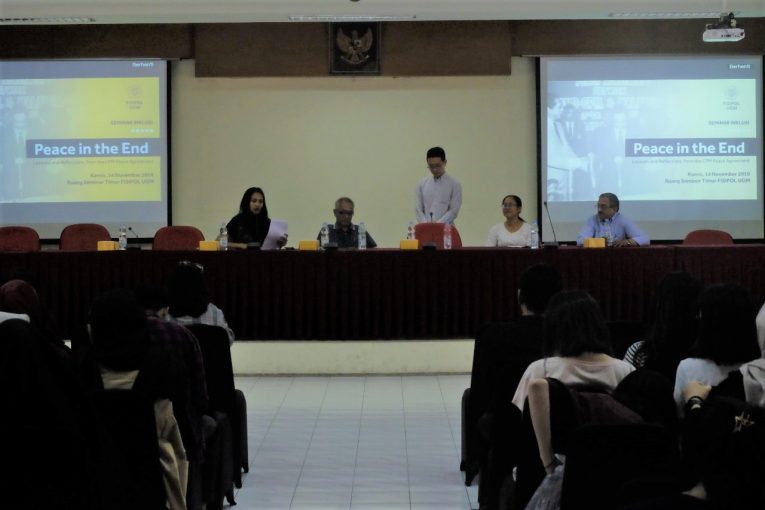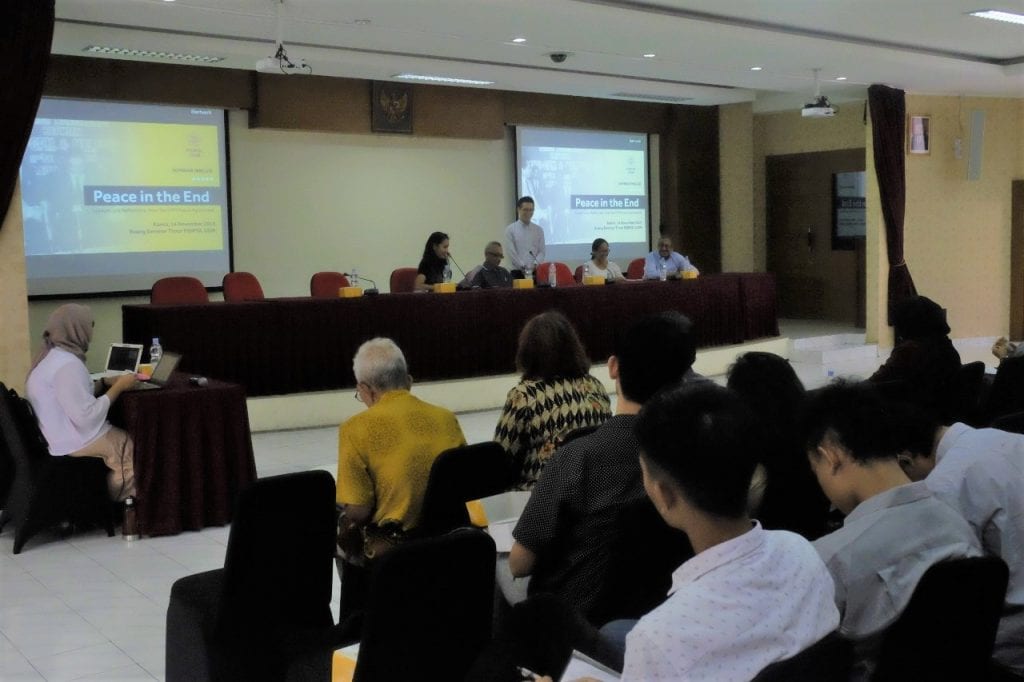
Yogyakarta, 17 November 2019—Peace will never appear suddenly. Peace is created, built and sometimes, fought for. “Because of peace, I can stand in front of you. If not due to peace, probably I have died in the jungles of Malaya,” Ravi Sarma stated with a smirk. “This is the first time I speak of this in the public,” Ravi added.
Ravi was one of the many that have participated in the guerrilla warfare in Malaysia and its surrounding areas. This war was a bitter conflict between the Malaysian government and the Malayan Communist Party (MCP).

In addition to Ravi, Ling Hongxuan was another speaker that participated in this event. Ling obtained his PhD from the University of Washington. A previous seminar entitled “Peace in the End” brought Ravi and Ling together. That seminar focused on peace from the socio-political perspective of Southeast Asia. That particular event was held by Fisipol.
“I feel happy and touched that speakers from overseas, such as Malaysia, Singapore and Washington, D.C. attended this event,” conveyed by Gilang Desti Parahita, in his opening speech. “It shows the importance of organizing similar events like this,” he added.
Gilang is a lecturer from the Department of Communication Studies. On this occasion, he attended this event as a moderator. After Gilang’s opening speech, Ling and Ravi shared their experiences to the audience.
Meanwhile, Ling shared his expertise of the MCP from a historical perspective. This topic is similar to the research on the relations between Marxism and Islam in Indonesia that he is currently working for his dissertation. To the audience, Ling explained the history about the foundation of the MCP, the armed conflict and the collapse of the MCP. He presented them in English.
“Even though the MCP was established in 1930, the MCP started to weaken after Malaysia’s independence in 1957,” Ling stated. Between 1930 and 1957, many historical events have involved the MCP. According to Ling, around 50,000 non-professional civilians were the members of the MCP.
From this discussion, we can conclude that establishing peace is not as easy as flipping our palms. It is our obligation to ensure that peace will be our future.
